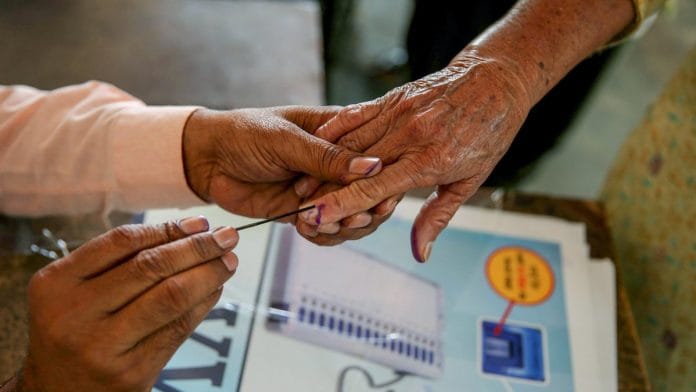New Delhi: The idea of common electoral rolls for Lok Sabha, assembly and local polls has got a fresh push, with the Prime Minister’s Office (PMO) meeting top government functionaries last week to thrash out the issues raised by some states regarding the implementation of the proposal, ThePrint has learnt.
According to sources in the government, the PMO met the secretaries of law, urban development and rural development, besides a representative of the Election Commission (EC) and the Cabinet Secretary, last week to discuss issues flagged by some states whose views were invited by the Cabinet Secretary.
Three issues are being ironed out at the level of the central government to go ahead with the proposal, which was mooted by the PMO in August this year, the sources said.
As of now, for the Lok Sabha and assembly elections, voters are registered in electoral rolls maintained by the Election Commission (EC) of India, and for local body elections, in lists maintained by individual state election commissions (SECs).
The SECs derive their powers to supervise elections to panchayats and municipalities in states from Articles 243K and 243ZA of the Constitution. The EC, meanwhile, derives its powers from Article 324(1) of the Constitution.
The issues raised by the states centre on the need for constitutional amendments to put the plan in action, the questions arising from differing boundaries of various voter segments, and the intervals at which the rolls are updated at the two levels.
The idea of common electoral rolls was part of the BJP manifesto for the 2019 Lok Sabha elections, pitched as an initiative meant to “ensure that every citizen gets the right to exercise his/her franchise for all public bodies and to avoid confusion created by multiple voter lists”.
When the PMO mooted the idea, it was decided that the Cabinet Secretary would consult the states on the proposal.
ThePrint reached the PMO spokesperson by text with queries about the meeting last week but hadn’t received a response at the time of publishing this report.
Also Read: Modi wants simultaneous polls — here’s why ‘one nation, one election’ works & why it doesn’t
The issues raised
Among the issues raised by states, sources said, first is the need to bring in constitutional amendments in Articles 243K and 243ZA, which deal with elections to panchayats and municipalities, respectively, and give the power of superintendence, direction and control of preparation of electoral rolls, and the conduct of these elections, to SECs.
These articles would need to be amended in order to ensure that the EC can prepare the rolls for local elections as well, states have said.
Secondly, the sources added, states have pointed out that there would be a need to align the updation of electoral rolls by the EC for the Lok Sabha and assembly elections, and that by the SECs for local polls.
While the SECs update their electoral rolls multiple times a year, thereby allowing voters several windows to register themselves once they turn 18, the EC undertakes this exercise only once a year. The EC has already written to the law ministry regarding a proposal to increase the frequency of this exercise to four times a year. If accepted, sources in the EC said, this proposal would allow the government to iron out this problem in preparing a common electoral roll.
Thirdly, the government is looking into the issue of different or overlapping boundaries for Lok Sabha and assembly constituencies, and those for wards, which are the geographical boundaries within which voting takes place for local elections.
While the EC maintains information regarding voters according to polling booths, the SECs maintain data by ward. The EC has no information regarding wards, and it is theoretically possible that one ward lies within the boundaries of two assembly constituencies.
Sources said the EC has proposed adding a separate field, indicating wards against the names of voters, to address this issue.
Also Read: This is not an easy time to be the Election Commission of India. Here’s why






